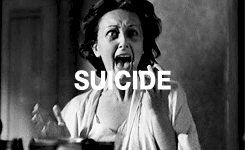
285 posts
Latest Posts by purplcx - Page 9



Shoes, 1916 (dir. Lois Weber)
my favourite button ever is "open link in new tab"..

All 13 full moons of 2023

Genevieve Naylor, Reading with chocolates, Redbook, 1957










1920s + dresses

Orson Welles resting on a sculpture of Shakespeare.
Photographer: Cecil Beaton
Vanity Fair

(Original caption) Actors Louise Brooks, Nancy Phillips, James Hall, Doris Hill, and Josephine Dunn play marbles at the movie studio in 1927



“I’m all right.”
Natalie Wood in Splendor in the Grass (1961, dir. Elia Kazan)

The Ephraim Enterprise, Utah, January 25, 1935
very late 50s early 60s movies are some of the most fascinating historical texts on earth i stg. like they can finally talk almost explicitly about sex, and they’ve finally thrown out the pair of twin beds for a normal queen or whatever, and they can talk about heterosexuality (inherently implies homosexuality)(like in auntie mame). they’re ALMOST there. you can literally feel the film industry grasping and clawing it’s way out of the hays era with every successive movie. it’s pretty incredible actually. and if you really want to feel that exertion just pick a couple of movies from various points in the decade and watch them in chronological order and the change is so astounding. can you imagine being there for that. can you imagine living through 40s movies and suddenly after wwii, the studios start collapsing and a huge tonal shift happens, and things get darker and grimmer and suddenly movies are talking about racism and women’s postwar discontent. and then oh my god it’s 1952 and censorship is suddenly kind of up in the air for the first time but you can’t even focus on that because marlon brando just swaggered onto your silver screen in his sweaty tee, chewing with his mouth open, and you see blanche get raped. and then immediately after that, deborah kerr is lying on top of burt lancaster and really really making out with him like they might as well have been having real sex up there. and don’t look now but dorothy dandridge was just nominated for an leading oscar!!!! what!!!! and all the girls are crazy for sidney poitier and harry belafonte ETC ETC ETC ETC until like the mid 60s when the whole everything is just completely utterly unrecognizable
I'm gonna need a Lesley Gore biopic. Lesley is and was such cool and interesting person. She's an icon and she would be the perfect person to have a biopic about.

Florence Lawrence was born on January 2, 1886 #botd
New Year's Resolution: utilize a wider variety of James Cagney-esque insults in my vocabulary. You smackoff. You chump. You penny-pinching pirate. You dirty, double-crossing, yellow-bellied sap of a stool pigeon, I oughta kick your teeth out one at a time now SCRAM, etc.




“Her emotions were close to the surface. She could cry on demand, opening the floodgate of tears almost as soon as I asked her to weep. She was dynamite, full of nervous energy and vitality and pitifully eager to please everyone”.
Frank Tuttle about Clara Bow



The Cook - 1918








Corey Haim in The Lost Boys (1987)

The Ephraim Enterprise, Utah, January 25, 1935


Elizabeth Taylor and Montgomery Clift, Hollywood, 1950

Elizabeth Taylor, Harper's Bazaar, 1959











"Rawlins this is Mrs. Kilbourne."
"Mrs. Kilbourne, haven´t you a cold? Oh, it must be the telephone. Your voice sounds so youthful."
Merrily We Live ( 1938)
director. Norman Z. McLeod








Silent star profiles.
Top left - bottom right: Ivor Novello, Ramon Novarro, Sessue Hayakawa, Rudolph Valentino, Charles Farrell, John Barrymore, Lars Hanson, Buster Keaton.

“She’d have ice cream for breakfast, while reading Freud.” —Mack Sennett on Mabel Normand
(From Roscoe "Fatty" Arbuckle: A Biography of the Silent Film Comedian, 1887-1933 by Stuart Oderman, 1994)
Charlie Chaplin this, Buster Keaton that, Harold Lloyd blah blah blah. They’re all amazing comedians who contributed a lot to motion pictures and it’s not a competition.
Permanent dark eye circles squad










Pre-Code Hollywood refers to the era in the American film industry between the introduction of sound in the late 1920s and the enforcement of the Motion Picture Production Code (usually labeled, albeit inaccurately after 1934, as the “Hays Code”) censorship guidelines. Although the Code was adopted in 1930, oversight was poor and it did not become rigorously enforced until July 1, 1934. Before that date, movie content was restricted more by local laws, negotiations between the Studio Relations Committee (SRC) and the major studios, and popular opinion than strict adherence to the Hays Code, which was often ignored by Hollywood filmmakers. As a result, films in the late 1920s and early 1930s included sexual innuendo, miscegenation, profanity, illegal drug use, promiscuity, prostitution, infidelity, abortion, intense violence and homosexuality.

Marilyn Monroe photographed at the age of 18 years old in October, 1944.
ROUND 1, MATCH 12


i actually really enjoy winter i don’t mind that it gets dark so early
>completely dark before 5:30
i think being alive is the worst thing that can happen to a person

















